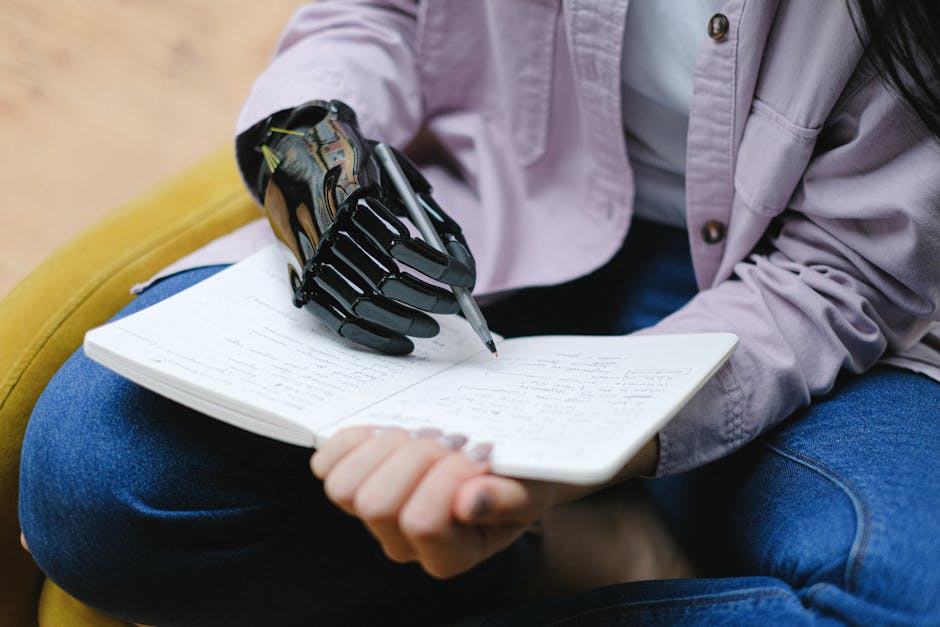Will AI Take Our Jobs!? – A Deeper Dive Beyond the Headlines
As we teeter on the edge of the AI revolution, a question looms….”Will artificial intelligence usurp our livelihoods? Or even surpass humans?” At the core of this inquiry lies the awe-inspiring complexity of the human brain. The prefrontal cortex of humans is not reaching its full potential until the mid-20s.
Now, let’s consider “ChatGPT,” one of the most popular artificial intelligence language models, with its staggering 175 billion parameters. While it’s not a direct comparison to the neurons in our brains, this scale is mind-boggling. It raises crucial questions: “ Should we be concerned? Is there a need to consider the potential implications of such rapid technological advancements?”
Let’s first look at the scientific differences between human and AI brains. Biological neurons use electrochemical signals to transmit information, while artificial neurons in AI systems use digital signals. Biological neural networks in the brain are intricately interconnected, with each neuron forming thousands of connections. In contrast, artificial neural networks have a more limited number of connections between layers. The human brain is a master of adaptation. It learns through experience and modifies its neural connections over time. AI systems, on the other hand, typically learn from vast datasets but do not adapt their neural networks like the brain. The brain’s highly complex neural pathways, with information flowing through many interconnected regions, has unique learning and adaptation capabilities. AI neural pathways, in comparison, are more linear, with information flowing from input to output layers. While artificial neural networks draw inspiration from the brain, their fundamental mechanisms differ considerably.
It’s no secret that AI and robots are already outperforming humans in various arenas, such as strategy games like chess and Go. Machines now handle tasks like piloting airplanes, driving cars, and even conducting surgeries. On the other hand, let’s consider a simple example: a child can quickly distinguish between an apple and an orange after a brief introduction. However, many machine learning algorithms require thousands of data sets to accomplish such a seemingly straightforward task.
Consider another instance: scientists in Germany have successfully trained a machine to replicate the styles of renowned artists like Van Gogh and Picasso, producing surprisingly convincing images. However, while the machine can mimic their work, this does not represent creativity.
The human brain is intricately linked with physical responses. For instance, emotions encompass more than just a mental state; they involve physiological and behavioral reactions that, in turn, influence brain function and thoughts. In 1997, when the IBM computer Deep Blue defeated the Russian world champion chess player Garry Kasparov, Kasparov’s emotional response was profound—he was devasted. While Deep Blue certainly managed to “outsmart” Kasparov, the computer was devoid of reaction or unique response.
When it comes to raw computational power, a machine can outperform a human. There is no doubt that machines will make our lives better and more enjoyable. But will machines be able to write the next original Oscar-winning movie script? Or will they go out in the rain to dance after a long, hot summer? AI will not replace humans, but someone with knowledge of AI will replace someone who does not.
The speed of innovation is outpacing how quickly humans can learn the new technologies. To bridge the gap between the classroom and rapid progression of technology and science in the outside world, we created Steam Inventors to better prepare students for the future job market, through afterschool and summer STEAM programs for students PreK-12. Check below how are we doing this.
If you are interested in knowing about Artificial Intelligence more you may consider the following links:
- Coursera – https://www.coursera.org/courses?query=artificial%20intelligence
- EDX – https://www.edx.org/learn/artificial-intelligence
- Techopedia – https://www.techopedia.com/best-artificial-intelligence-learning-resources-online-in-2021/2/34566
- https://unicornplatform.com/blog/top-5-best-websites-to-learn-machine-learning-for-free/


 Next Post
Next Post